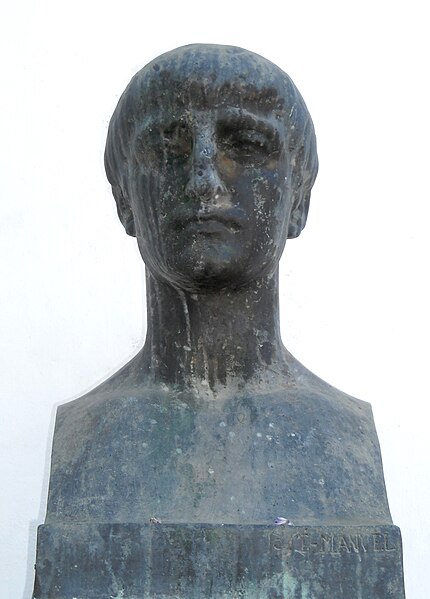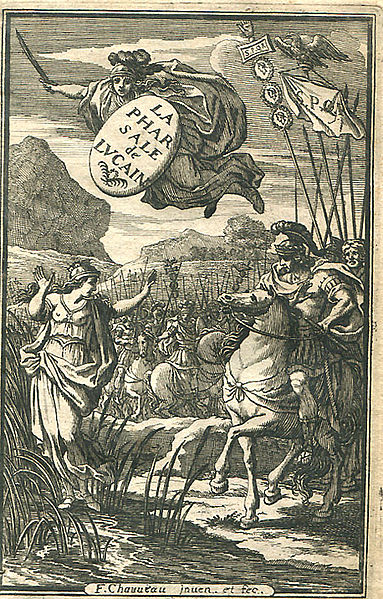De Bello Civili, more commonly referred to as the Pharsalia, is a Roman epic poem written by the poet Lucan, detailing the civil war between Julius Caesar and the forces of the Roman Senate led by Pompey the Great. The poem's title is a reference to the Battle of Pharsalus, which occurred in 48 BC, near Pharsalus, Thessaly, in Northern Greece. Caesar decisively defeated Pompey in this battle, which occupies all of the epic's seventh book. In the early twentieth century, translator J. D. Duff, while arguing that "no reasonable judgment can rank Lucan among the world's great epic poets", notes that the work is notable for Lucan's decision to eschew divine intervention and downplay supernatural occurrences in the events of the story. Scholarly estimation of Lucan's poem and poetry has since changed, as explained by commentator Philip Hardie in 2013: "In recent decades, it has undergone a thorough critical re-evaluation, to re-emerge as a major expression of Neronian politics and aesthetics, a poem whose studied artifice enacts a complex relationship between poetic fantasy and historical reality."

The Pharsalia was especially popular in times of civil wars and similar troubles; for example the editor of this 1592 edition, Theodor Pulmann, explains Lucan's relevance by the French Wars of Religion (1562–98).
Susanna Braund argues that, were the poem to have been finished, it would have ended with Cato's death.
In book six, Erichtho (pictured) performs a necromantic rite, which many contend is one of the Pharsalia's best-known sequences.
The base of the Confederate Memorial at Arlington National Cemetery in the United States, which is inscribed with Lucan's line, Victrix causa deis placuit sed victa Catoni.
Marcus Annaeus Lucanus, better known in English as Lucan, was a Roman poet, born in Corduba, in Hispania Baetica. He is regarded as one of the outstanding figures of the Imperial Latin period, known in particular for his epic Pharsalia. His youth and speed of composition set him apart from other poets.
Modern bust of Lucan in Córdoba. There are no ancient likenesses.
Engraved title page of a French edition of Lucan's Pharsalia, 1657
Pharsalia, 1740







